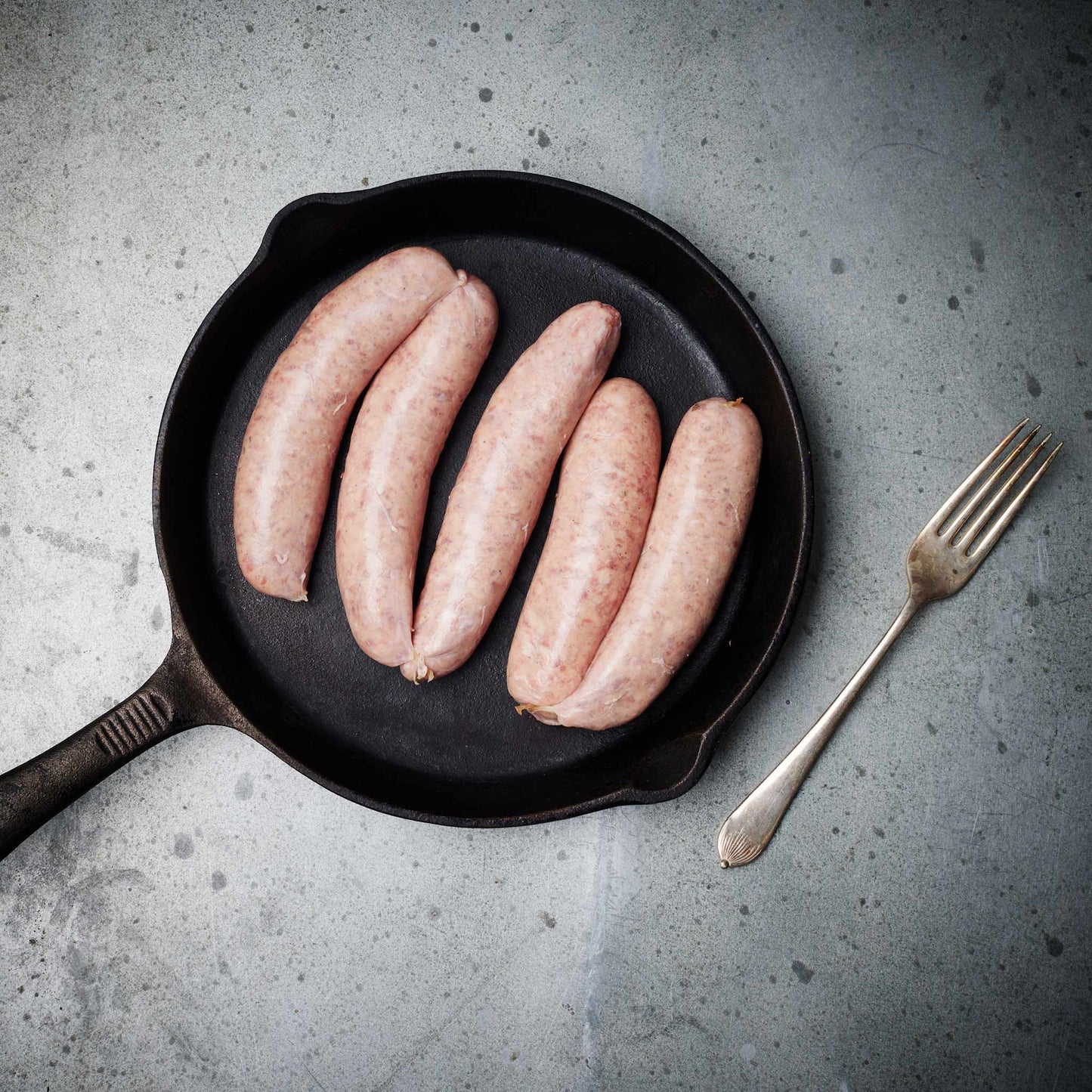We source our chicken from one farm in Leicestershire. The farm is Pasture for Life certified and rears truly free range, outdoor birds.

This will not be an easy article to condense and indeed could be a book in its own right but it is prompted by an article this week in The Guardian entitled Nitrites in bacon: MPs and scientists call for UK ban over cancer fears' once again raised the contentious issue of nitrates as a food preservative.
The Guardian is not exactly known in recent times for balanced journalism when it comes to the production and consumption of meat, it is heavily funded by The Gates Foundation to promote a meat free agenda through 'sponsored editorials' which take the form of editorial pieces with a very small print caveat at the bottom of the piece. (image below shows receipt from The Gates Foundation to The Guardian Newspaper in 2011, the foundation has continued to supply funding to date)

Bill Gates has publicly stated in the Guardian that "I help fund companies like Beyond, Impossible, Motif [FoodWorks] and a number of others that work along those lines." and it is well reported that he is now the biggest single owner of agricultural land in the US.
Ok, so this could explain the reason The Guardian is so keen to report on this but the piece in question states
'Leading food scientists and a cross-party group of MPs and peers are urging UK ministers to ban the use of chemicals in bacon that heighten the risk of several forms of cancer.'
So this comes from the British government, notably from a conservative MP called Dr Dan Poulter. From his own website 'Dr Dan Poulter is an NHS hospital doctor, working in mental health services, who has been our MP for Central Suffolk and North Ipswich since May 2010'

Elsewhere on Dr Poulter's website is this comment when asked about veganism.
'Locally sourced meat will invariably have a lower carbon footprint than rice which is imported from overseas. Suffolk’s meat and dairy herds turn something we cannot eat – grass, into something we can – meat and dairy. They help to recycle fertility and make use of land that cannot easily grow crops.
The label often given to red meat as being an unhealthy food has become a dietary dogma, but research reveals a more complex picture. The association between red meat and negative health outcomes has been more commonly observed in studies where people are eating a highly processed diet, while studies of healthy omnivores eating a diet rich in plant foods have failed to find consistent evidence that red meat is unhealthy. The contribution of red meat to our diet is further complicated by the fact that not all meat is produced equally. Different farming systems, which provide animals with very different lives produce meat and dairy of varying quality. In that respect, we should be happy to eat and consume meat and dairy produced by our Suffolk farmers as part of a healthy and balanced diet which contains vegetables.'
We couldn't have put it better, so we wonder why the Dr is recommending a ban on Nitrates in food, it probably comes from the WHO (World Health Organisation) report that declared processed meat to be a Group 1 carcinogen, so let's look at that which brings us neatly back to Bill Gates.
But first let's consider what a Group 1 carcinogen is and what the WHO has deemed the risk factor to be.
The International Agency for Research on Cancer is an intergovernmental agency forming part of the World Health Organisation of the United Nations. Its role is to conduct and coordinate research into the causes of cancer. It also collects and publishes surveillance data regarding the occurrence of cancer worldwide.The IARC was comparing the risk of bowel cancer for people who eat 50 grams of processed meat per day with the risk for those who don’t eat processed meat at all.
The report from the IARC formed the basis of the recommendation by the WHO and it assessed the relative risk to be just 18%, remember this is still just number crunching from correlation, not a definitive action of causation but even so, what does this relative risk reported mean?
From the Union for International Cancer Control's website
The 18% increase means the risk of developing bowel cancer is 1.18 times higher for those who eat 50 grams of processed meat per day compared to those who eat none. The figure 1.18 is known as “relative risk”.
Put this way, the increase is quite small. By contrast, men who smoke cigarettes have about 20 times the risk of developing lung cancer as men who do not smoke. Expressed as a percentage, the increase in risk due to smoking is 1,900%.
A potential problem with presenting relative risk in the format IARC uses is that many people will incorrectly conclude that if they ate processed meat, they had an 18% (almost one in five) chance of getting bowel cancer. Thus, they were misled.
Back to the WHO.....
Though the UN’s World Health Organisation is run by member states which donate public funds, it relies heavily on private donors. One of those is the Gates Foundation, by far the largest private contributor to the WHO, accounting for some 10% of its budget. Only the US government pays more, and had the US pulled out as threatened by the former Trump administration, the organisation would have found itself in the unprecedented position of having the Gates Foundation as its top donor, this amounted to a staggering $531m in 2018-2019 alone.
“That’s a concern that’s been documented,” says Linsey McGoey, a professor of sociology at Essex University in the UK who wrote a book (“No Such Thing as a Free Gift: The Gates Foundation and the Price of Philanthropy”) on Gates and global public health. She thinks Gates has an ideological interest in seeing measurable results on a quick timescale, to show that “billionaire philanthropy” is working. “I think it's because he has a personal interest in seeing results quickly, because it helps to bolster his own reputation,” says McGoey.
Some public health officials have disagreed with Gates’s priorities, but there is reluctance to criticise him for fear of losing support. This self-censorship has become so widespread it has been dubbed the “Bill Chill”, according to the New York Times
Ok, so what does this have to do with bacon?
From the WHO website:
An international advisory committee that met in 2014 recommended red meat and processed meat as high priorities for evaluation by the IARC Monographs Programme. This recommendation was based on epidemiological studies suggesting that small increases in the risk of several cancers may be associated with high consumption of red meat or processed meat.
Harvard School of Public Health reported on the finding: 'Conclusions were primarily based on the evidence for colorectal cancer. Data also showed positive associations between processed meat consumption and stomach cancer, and between red meat consumption and pancreatic and prostate cancer.'
Let's break this down. Positive associations were found, in other words correlations from epidemiological nutritional studies. This should, in the case of 'good science' lead investigators to look for causation but in stating categorically that processed meat is a class 1 carcinogen they seem to have skipped the 'proof needed' stage.
What could these correlations suggest?
Ever since the advent of cheap-to-produce seed oils in our food system, meat has been demonised and labelled as unhealthy, meaning people who eat a lot of processed meat are potentially more likely to consume it on a 'meat feast' pizza on the sofa with a few drinks after the pub, not with a salad after the gym and this will skew the results somewhat in an epidemiological study which relies on self reported data from the participants.
So what about nitrates and nitrites, what are they?
Nitrates and nitrites are used as preservatives in processed food such as bacon, hams and sausages, they're added because they help prevent bacterial growth from organisms such as Clostridium botulinum which is a nasty little devil, when growing on food it creates a toxin so strong it can kill a healthy adult in the nanogram range of concentrations, it is in fact the most powerful toxin known to us.
Nitrates are produced in the human body in amounts far greater than anything you could ever eat, as Chris Kresser puts it "salivary nitrite accounts for 70-90% of our total nitrite exposure. In other words, your spit contains far more nitrates than anything you could ever eat. Veggies contain way more naturally-occurring nitrites than processed meats like bacon. In fact, one serving of arugula (salad rocket) contains more nitrates than 467 hot dogs"So what could be the problem?
Also, nitrates do not accumulate in the body and are quickly flushed in the urine, 25% of the nitrates we consume is converted into salivary nitrite, 20% converted into nitrite, and the rest is excreted in the urine within 5 hours of ingestion. Any nitrate that is absorbed has a very short half-life, disappearing from our blood in under five minutes.
So where does the fear come from? It can't be all a Bill Gates conspiracy.
The fear of nitrites and nitrates comes from the fact that some of them can transform into nitrosamines while cooking. Nitrosamines are potentially carcinogenic, so that’s definitely a reason for concern that has some limited evidence for causation rather than just correlation, but that’s exactly why manufacturers use vitamin C (ascorbic acid) when curing their meats.
It turns out that vitamin C or even vitamin E offers a protective antioxidant effect on the meat, and prevents the formation of nitrosamines.
Ok, so what are nitrosamines and should we worry about them?
Nitrosamines are defined by the National Cancer Institute as: A type of chemical found in tobacco products and tobacco smoke. Nitrosamines are also found in many foods, including fish, beer, fried foods, and meats. Some nitrosamines cause cancer in laboratory animals and may increase the risk of certain types of cancer in humans.
As with all substances, 'dosis sola facit venenum' or in modern speak, the poison is in the dose, this quote is credited to Paraclesus from 1520 (ish) and is just as true today.
It seems that small doses of these compounds can be tolerated however there are things we can do to reduce exposure.
In this paper it notes: Cooking is a significant factor affecting N-nitrosamine content in food. Many researchers have indicated that broiling and frying increase N-nitrosamine concentration in meat products (Fiddler et al., 1992; Lee et al., 2003; Lehotay et al., 2015). For example, Li and others found that deep frying and pan frying generated highest quantities of NDMA, NDEA, and N-nitrosopyrrolidine (NPYR), whereas boiling and a microwave did not produce N-nitrosamines in dry-cured sausage
So what can we do?
To surmise, cook cured meats such as bacon on a lower heat for longer, avoid deep fried foods as much as possible, don't worry about uncooked cured meats containing nitrates, but you might as well combine any of these meats with a source of vitamin C, enjoy your food, and probably don't take nutrition advice from Bill Gates.



